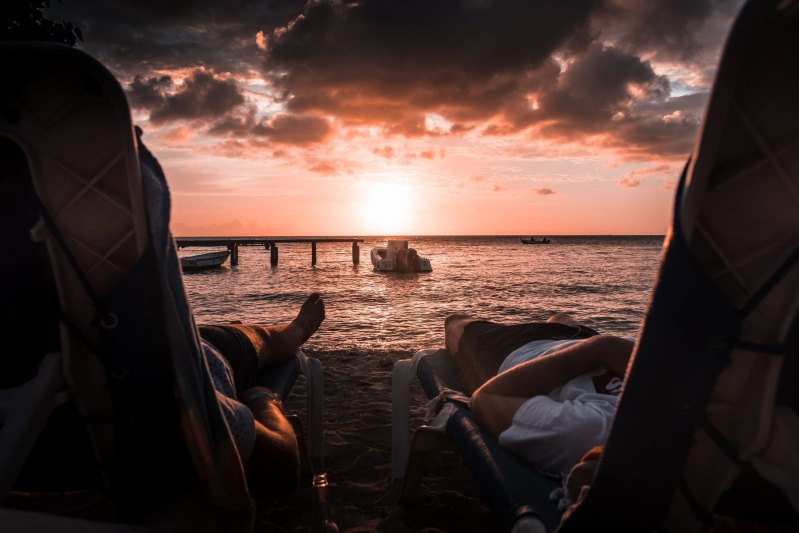
It feels like we might finally be in the home stretch of this pandemic. Sure, we’ll probably all be wearing face masks and bathing in hand sanitizer for the foreseeable future, but life is otherwise slowly returning to normal. That means most of us can start traveling again. If you’ve been dying to get out of the house and maybe make a big career change in the process, the island of Curaçao has a program for you. All you need is a laptop, a love of the beach, and the ability to uproot your life for at least six months.
Related Guides
- When Will It Be Safe to Book Travel Again?
- Should You Travel After Getting a COVID-19 Vaccine?
- Countries Vaccinated Americans Can Travel To Right Now
Through the new @Home in Curaçao initiative, the Dutch Caribbean island welcomes new visitors from around the world. The program includes three categories: Remote workers/digital nomads, investors, and snowbirds. Most applicants will fall into the remote worker category and must be able to prove that they have a stable job in a foreign country other than Curaçao. Whichever category visitors fall into, however, they won’t be subject to local income taxes. Qualified applicants (and their families) will be invited for a period of six months with the option of extending their stay for an additional six months.
Curaçao may not have the recognizable brand-name cache of more popular Caribbean destinations like the Dominican Republic or Jamaica. It’s easy for many Americans to assume that most of the region’s tropical islands are alike. That’s why Curaçao is joining other smaller islands like Antigua, Barbuda, and even Mauritius, with a creative program to entice new visitors into coming for the short-term and potentially staying indefinitely. Like these other islands, Curaçao’s “under-the-radar” status is part of its appeal. Sure, it’s home to some luxury resorts and bustling tourism industry, but overall it’s held onto much of its authenticity, charm, and laid-back “live and let live” attitude.
Of course, there’s also the island’s amazing climate, year-round sunshine, world-class beaches, incredible food — the list goes on. Thanks to an excellent healthcare system, a stable government, low cost of living, and reliable internet access, it’s among the best islands in the Caribbean for remote workers. It has also worked hard to keep the spread of COVID-19 infections under control, ensuring it’s among the safest destinations in the world for international travelers. The location just off the northern coast of South America places it within a short hop of Aruba and Bonaire — both world-class island locations with plenty of opportunities for adventure travelers.
Interested travelers can visit www.athomeincuracao.com to apply to the program. Qualified applicants need to provide a $300 upfront fee, along with some personal and financial information to prove they’re gainfully employed outside of Curaçao. Proof of vaccination is also required. Applicants can expect to hear back in about two weeks. But honestly, this all feels like a small price to pay for the opportunity to work in your bathing suit from one of the world’s most beautiful places for a year.



